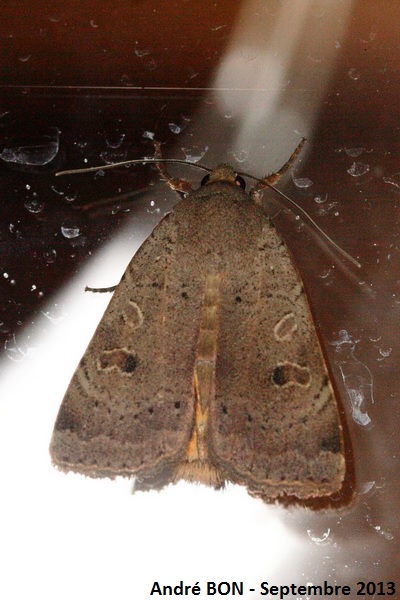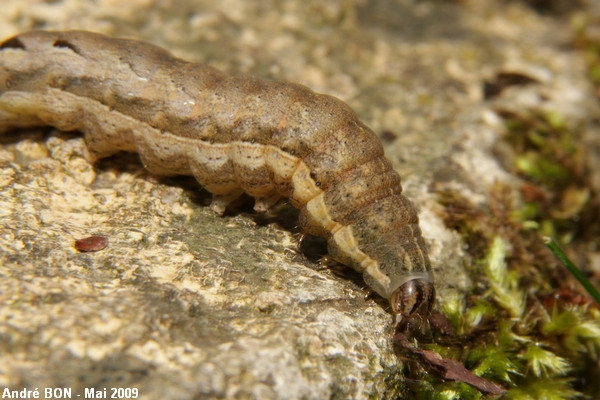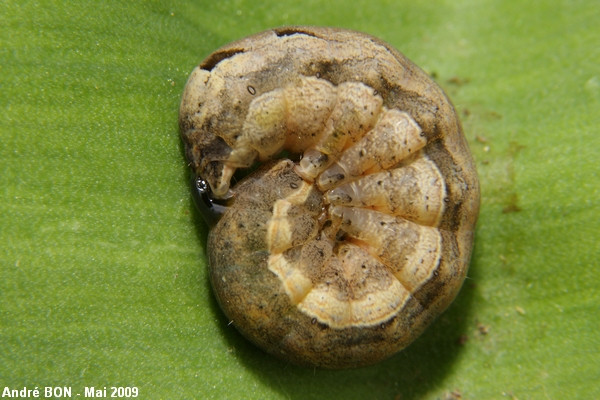



| Lesser Yellow Underwing (Noctua comes (Hübner, 1813)) |




|
|
Scientific name: Noctua comes (Hübner, 1813) Common name: Lesser Yellow Underwing French name: Hulotte, Suivante. Order: Lepidoptera Suborder: Heterocera Family: Noctuidae Subfamily: Noctuinae Wingspan: 39 to 46 mm. Biotope: Parks, gardens, meadows, trees bordering water, woodland edges, fallow lands. Geographic area: Europe, Middle-East, North Africa, introduced to North America. Flight time: May to October. Number of generations : 1 Caterpillar: Greyish green to pale brownish pink with a dark lateral stripe above a whitish stripe. It shows triangular blackish marks on each side of the back at the rear. The 8th abdominal segment is swollen. Host plant: Many low growing plants. |
The Lesser Yellow Underwing's fore wings are variable in colour, from light brown to reddish brown or blackish brown. They show a lightly marked kidney shaped patch bordered by a dark crescent-shaped mark. The hind wings are orange yellow with a black sub-terminal band and a black discal patch. The Lesser Yellow Underwing is attracted to light. It overs winter as a larva. |
| [To know more about the Lesser Yellow Underwing] [Next picture] [Top] |

|
I have found this Lesser Yellow Underwing inside the house. It must have been attracted to light. |
| [To know more about the Lesser Yellow Underwing] [Next picture] [Previous picture] [Top] |

|
This Lesser yellow Underwing, attracted to light, also wanted to enter the house. The dirt marks on the window indicate a rainy weather. |
| [To know more about the Lesser Yellow Underwing] [Next picture] [Previous picture] [Top] |

|
I have found this caterpillar on the ground, among dead leaves. |
| [To know more about the Lesser Yellow Underwing] [Previous picture] [Top] |

|
The Lesser Yellow Underwing caterpillar rolls itself immediately when I approach. |